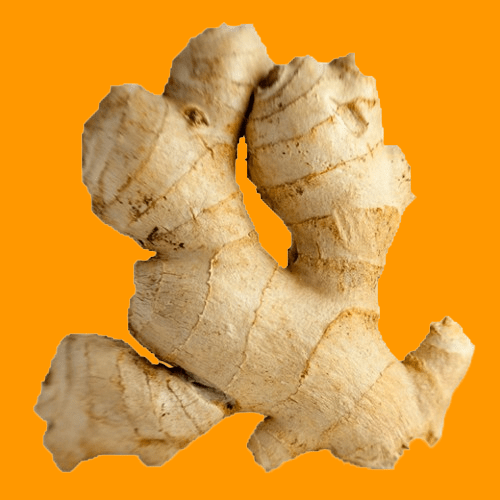Is ginger tea useful for colds?
How to make ginger tea at home? First of all, you need to peel the root ginger, which is as much as a clove of garlic. Then it is enough to boil the ginger for 10 minutes by putting it in a glass of water. Before consuming, you can sweeten your healing drink by adding a teaspoon of honey.
Ginger tea is often considered beneficial for relieving symptoms associated with colds. Ginger has various health benefits, and its active compounds, including gingerol, have anti-inflammatory and antioxidant properties. Here are some ways in which ginger tea may be useful for colds:

- Soothing Sore Throat: Ginger has natural anti-inflammatory properties that can help soothe a sore throat, a common symptom of colds.
- Relieving Nausea: Ginger is well-known for its ability to alleviate nausea, which can be helpful if you’re experiencing an upset stomach or queasiness due to a cold.
- Reducing Congestion: The warmth of ginger tea can help relieve nasal congestion by promoting mucus flow and easing respiratory discomfort.
- Boosting Immune System: Ginger contains antioxidants that may support the immune system. While it won’t cure a cold, supporting your immune system can be beneficial during an illness.
To make ginger tea for a cold:
- Ingredients:
- Fresh ginger root (about 1-2 inches, sliced or grated)
- Water (about 2 cups)
- Optional: Lemon and honey for flavor
- Instructions:
- Peel and slice or grate fresh ginger.
- Boil the ginger in water for about 10-15 minutes.
- Strain the ginger pieces from the tea.
- Add honey and lemon for flavor if desired.
- Drink the tea while it’s warm.
It’s important to note that while ginger tea may help alleviate some symptoms of a cold, it is not a substitute for medical treatment. If you have a severe cold or persistent symptoms, it’s advisable to consult with a healthcare professional. Additionally, ginger may interact with certain medications, so individuals taking medications should check with their healthcare provider before consuming ginger in large quantities.
How is ginger used to treat colds?
Ginger is used to treat colds primarily due to its potential health benefits, including anti-inflammatory, antioxidant, and antimicrobial properties. While ginger cannot cure a cold, it may help alleviate some of its symptoms. Here are ways in which ginger is commonly used to treat colds:

- Soothing Sore Throat: Ginger has anti-inflammatory properties that can help soothe a sore throat, a common symptom of colds. Consuming ginger tea or adding fresh ginger to hot water with honey and lemon may provide relief.
- Reducing Nausea: Ginger is well-known for its anti-nausea properties. It can be effective in easing nausea and vomiting associated with colds or flu. Ginger tea, ginger candies, or ginger capsules are some ways to incorporate ginger for this purpose.
- Alleviating Congestion: The warming properties of ginger may help loosen and expel mucus, making it easier to breathe. Ginger tea or hot ginger beverages can be comforting and may provide relief from nasal congestion.
- Boosting Immune System: Ginger contains antioxidants, which can contribute to supporting the immune system. While it won’t prevent a cold, having a strong immune system may help the body better fight off infections.
- Reducing Inflammation: Inflammation is a common response to infections like the common cold. Ginger’s anti-inflammatory properties may help reduce inflammation, contributing to overall comfort during an illness.
Ways to Use Ginger for Colds:
- Ginger Tea: Prepare ginger tea by boiling fresh ginger slices in water. Add honey and lemon for flavor and additional soothing effects.
- Ginger and Honey: Mix grated ginger with honey and consume this mixture. Honey has its own soothing properties and can be beneficial for a sore throat.
- Ginger Capsules or Supplements: Some people choose to take ginger supplements in the form of capsules. However, it’s essential to consult with a healthcare professional before using supplements, especially if you are on medication or have existing health conditions.
- Ginger in Foods: Incorporate fresh ginger into your meals, such as in soups, stir-fries, or smoothies.
It’s important to note that individual responses to ginger can vary, and its effectiveness may differ from person to person. While ginger can be a supportive remedy for cold symptoms, it is not a substitute for medical advice or treatment. If you have concerns about your health or the severity of your cold, it’s recommended to consult with a healthcare professional. Is ginger a good choice for colds in winter? >>
Who should not take ginger?
While ginger is generally considered safe for most people when consumed in moderate amounts, there are certain individuals who should exercise caution or avoid ginger altogether. It’s always advisable to consult with a healthcare professional before incorporating significant amounts of ginger into your diet, particularly if you fall into any of the following categories:
- Pregnant Women: While ginger is often used to alleviate nausea during pregnancy, pregnant women should consult with their healthcare provider before using ginger supplements or consuming large amounts, as excessive intake may have potential effects on pregnancy.
- Individuals on Blood-Thinning Medications: Ginger may have a mild blood-thinning effect, and it could interact with medications that have similar effects. Individuals taking blood-thinning medications, such as warfarin, should consult with their healthcare provider before using ginger supplements.
- People with Gallstone Issues: Ginger may stimulate the production of bile. Individuals with gallstones or a history of gallbladder problems should consult with their healthcare provider before using ginger.
- People Scheduled for Surgery: Due to its potential blood-thinning effects, it’s advisable to stop using ginger at least two weeks before scheduled surgery. Ginger supplements might interfere with blood clotting and interact with anesthesia.
- Individuals with Bleeding Disorders: People with bleeding disorders or those prone to bleeding should exercise caution with ginger, as it may increase the risk of bleeding.
- Individuals with Low Blood Sugar (Hypoglycemia): Ginger may lower blood sugar levels. People with diabetes or those taking medications to lower blood sugar should monitor their levels closely and consult with their healthcare provider if considering ginger supplements.
- People with Allergies to Ginger: Some individuals may be allergic to ginger. Allergic reactions can include skin rashes, itching, and difficulty breathing. If you experience any allergic symptoms, discontinue use and seek medical attention.
- Individuals with Cardiovascular Conditions: Individuals with cardiovascular conditions or those taking medications for heart-related issues should consult with their healthcare provider before using ginger supplements, as ginger may affect heart rate and blood pressure.
Always keep in mind that moderation is key, and incorporating small amounts of fresh ginger into your diet is generally considered safe for most people. However, it’s crucial to consult with a healthcare professional, especially if you have pre-existing health conditions or are taking medications that may interact with ginger.





